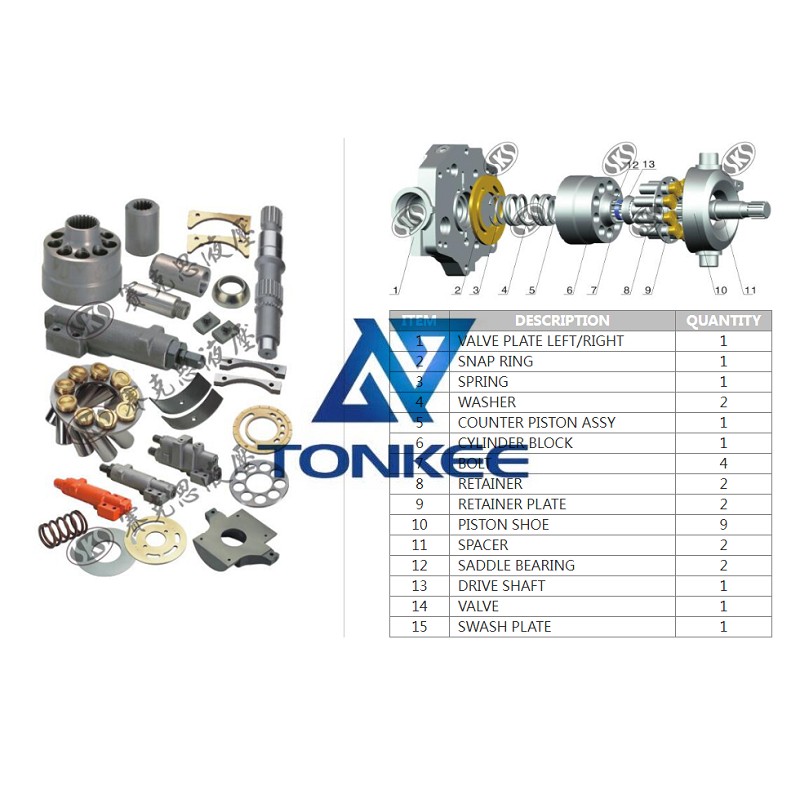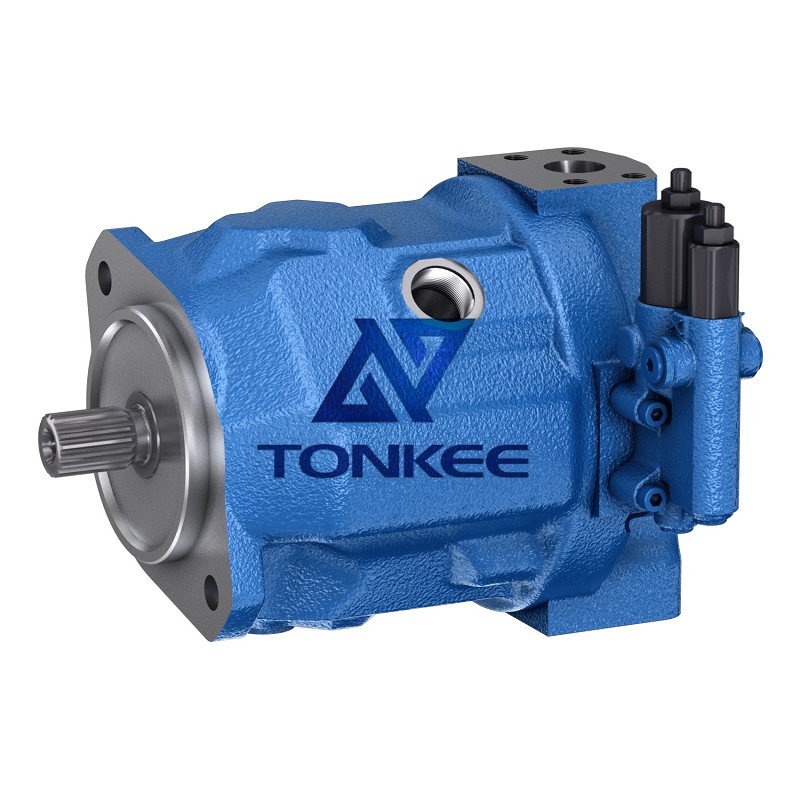
The PVH74 COUNTER PISTON ASSY is a critical component responsible for converting mechanical power into hydraulic energy.
It plays a crucial role in generating the necessary pressure to move fluids through the hydraulic system. The assembly consists of several key parts that work together to achieve efficient and reliable hydraulic performance.
One of the main components of the PVH74 COUNTER PISTON ASSY is the counter piston. The counter piston is a precision-machined part that reciprocates within the pump housing. Its movement is driven by an external power source, typically an engine or an electric motor. As the counter piston moves back and forth, it creates a pumping action that draws in hydraulic fluid from the reservoir and pressurizes it for delivery to the system.
Another essential element of the assembly is the cylinder block. The cylinder block houses multiple cylinders, each containing a counter piston. The precise design and machining of the cylinder block ensure smooth movement of the counter pistons and minimize fluid leakage, maximizing pump efficiency.
To maintain a proper seal and prevent fluid leakage, the PVH74 COUNTER PISTON ASSY utilizes high-quality piston rings. These rings are made from durable materials and are carefully designed to create a tight seal between the counter piston and the cylinder wall. The piston rings ensure efficient transfer of hydraulic pressure and minimize internal leakage, which is crucial for optimal pump performance.
Additionally, the assembly includes various supporting components such as bearings, seals, and gaskets.
These components provide stability, reduce friction, and prevent fluid leakage in the hydraulic pump. Each component is selected and manufactured to meet stringent quality standards, ensuring long-lasting performance and reliability.
The PVH74 COUNTER PISTON ASSY is engineered to deliver high efficiency and durability. It is designed to withstand demanding operating conditions, including high pressure, temperature, and continuous use. The materials used in its construction are selected for their strength, corrosion resistance, and compatibility with hydraulic fluids.





 English
English português
português Русский язык
Русский язык










